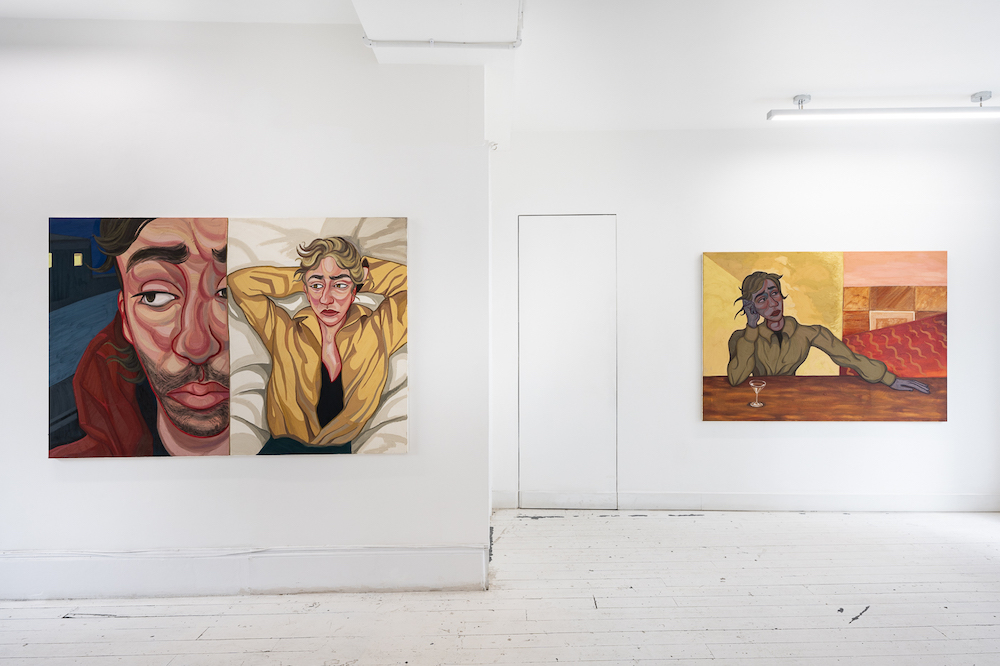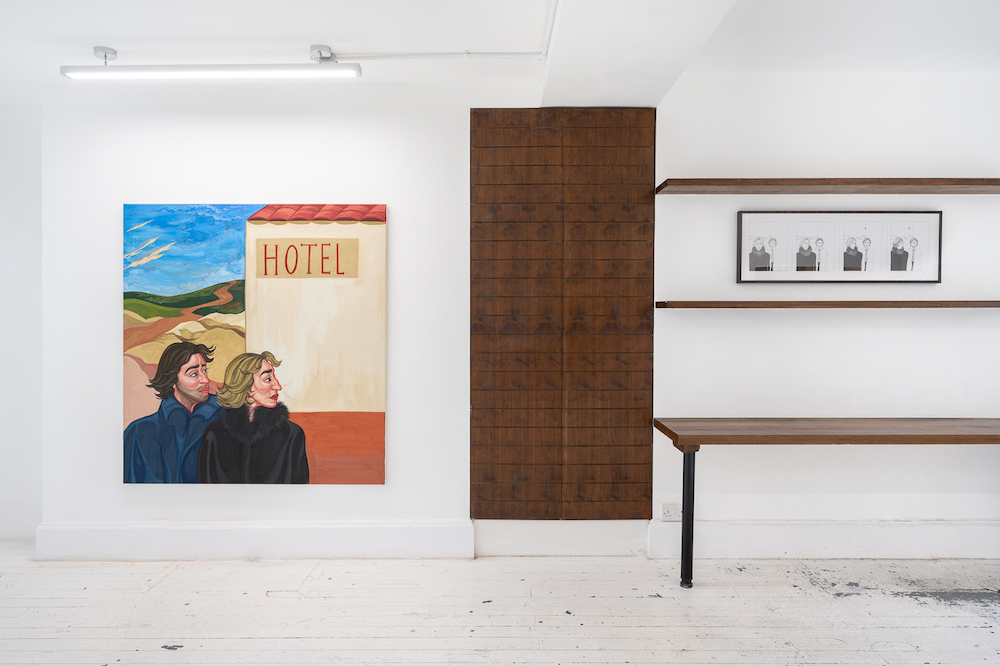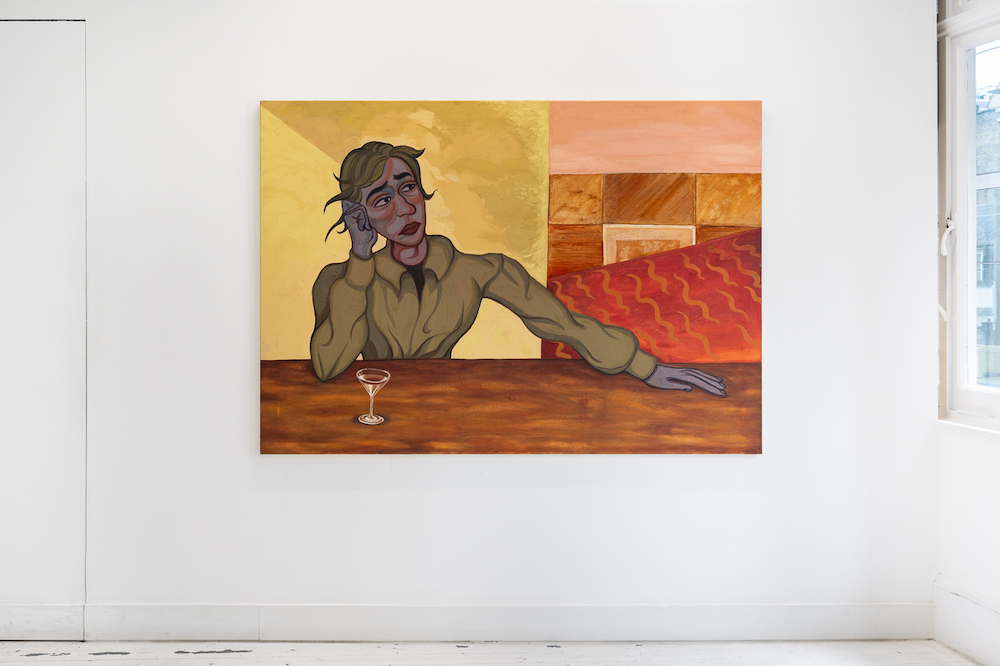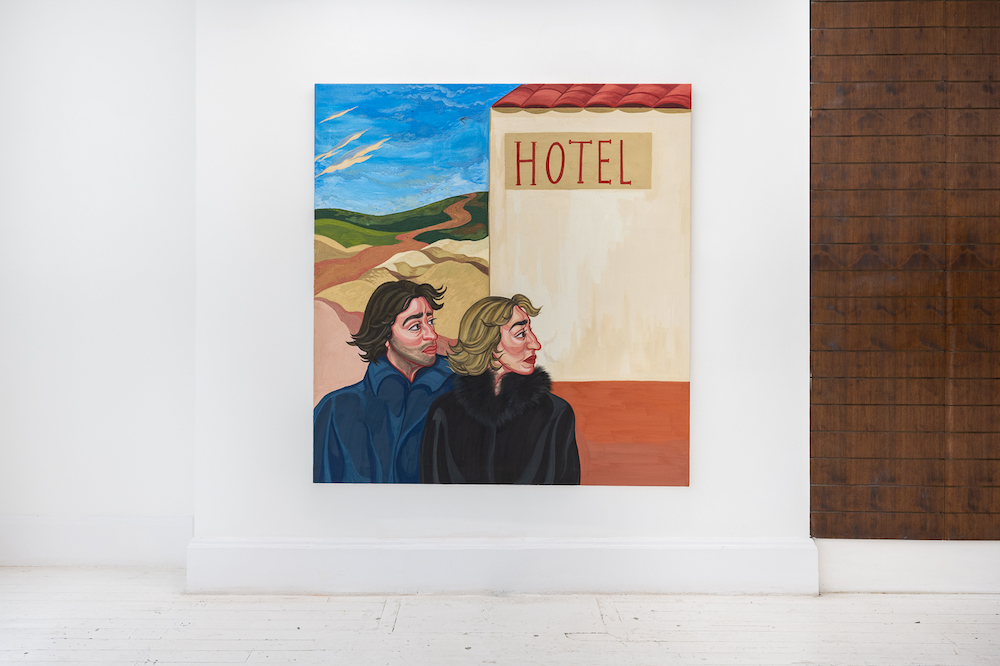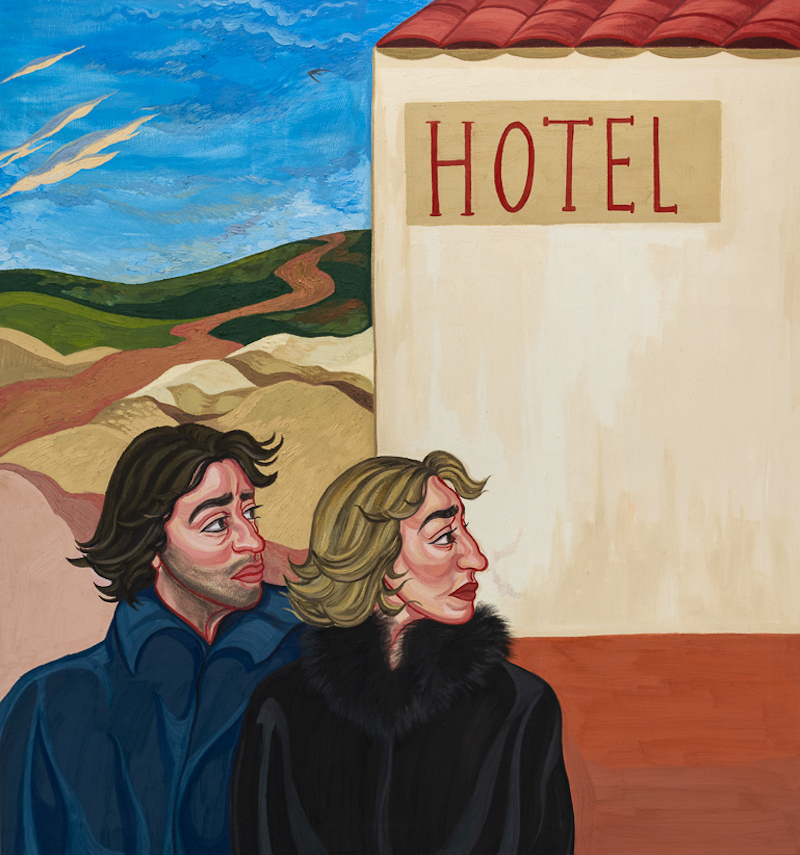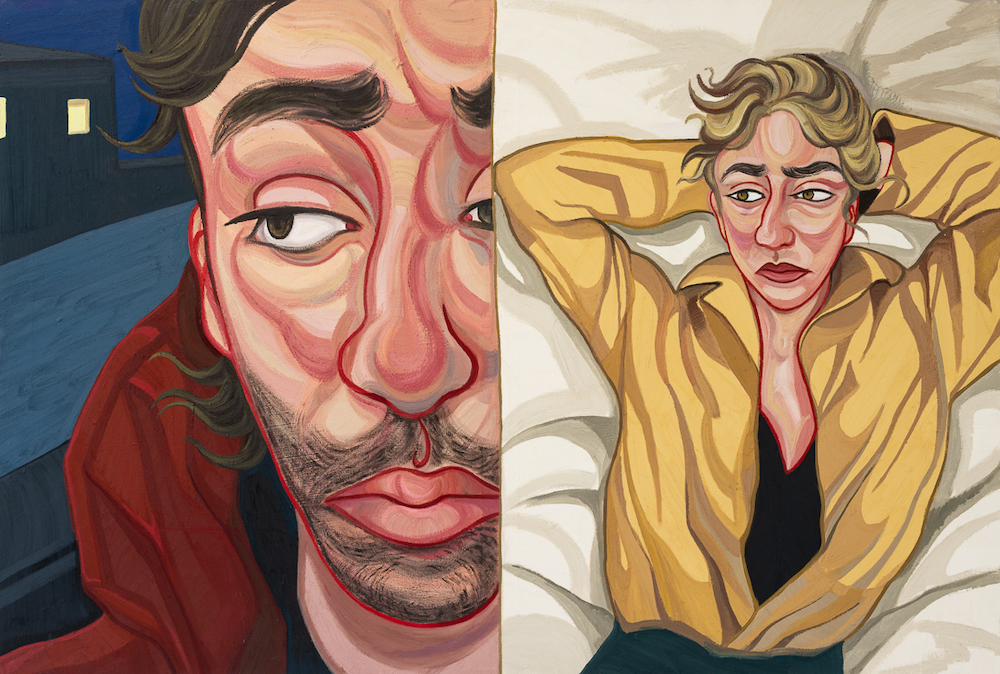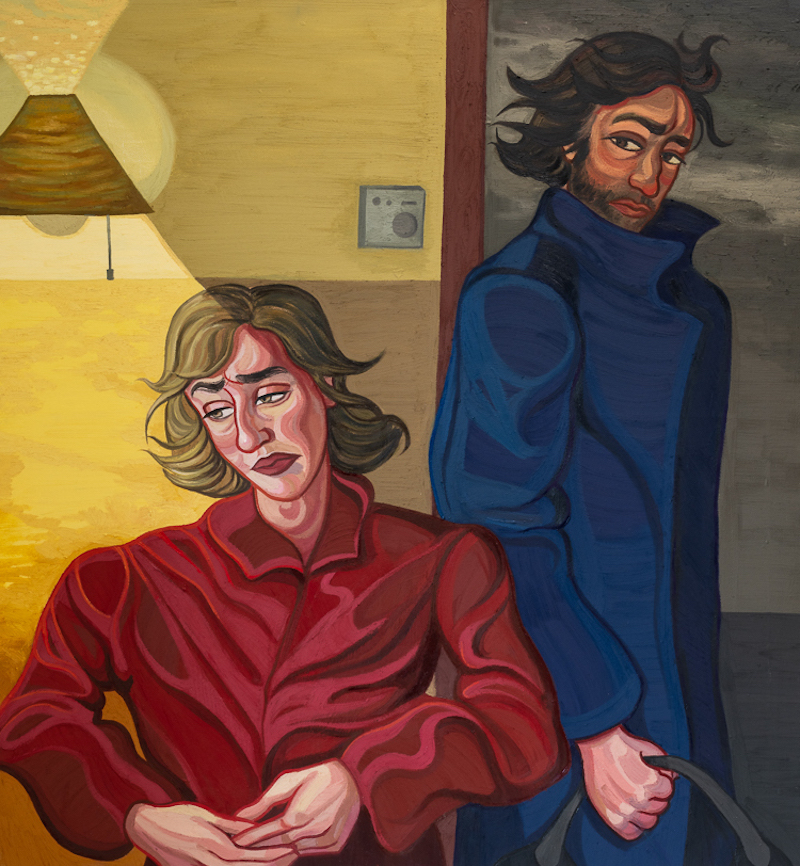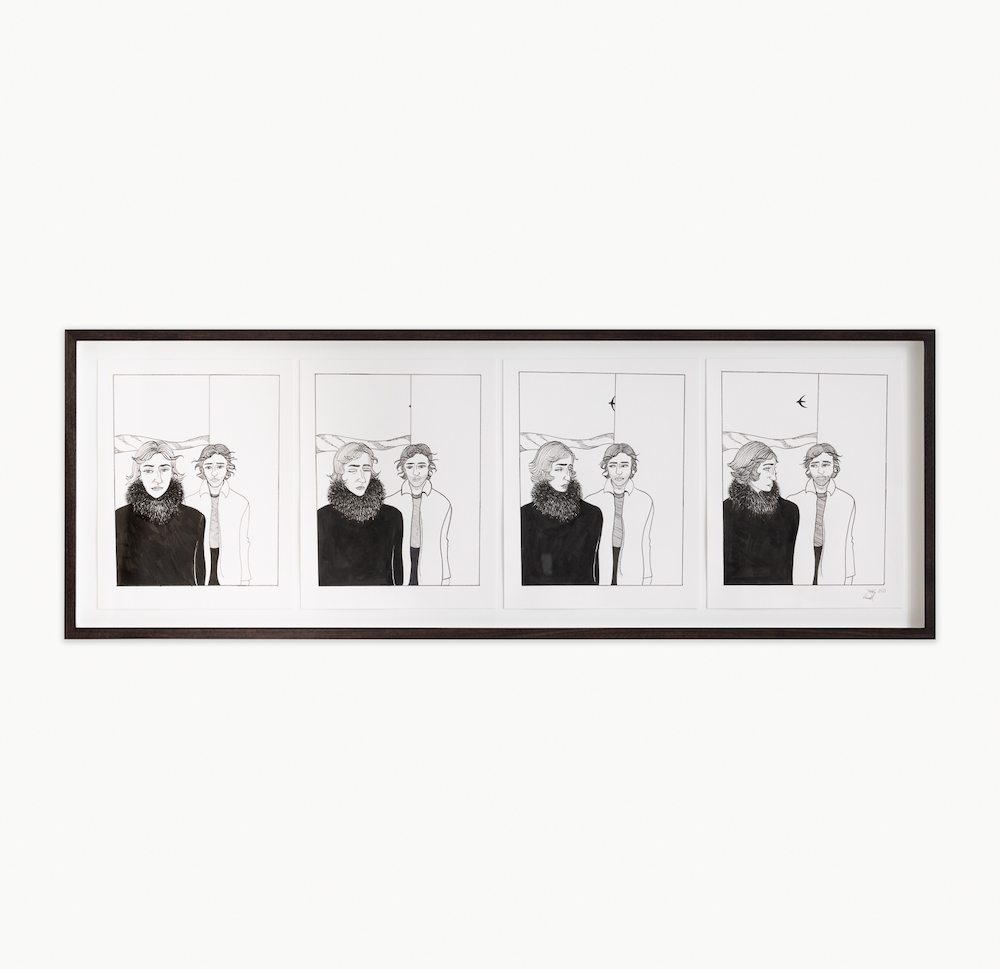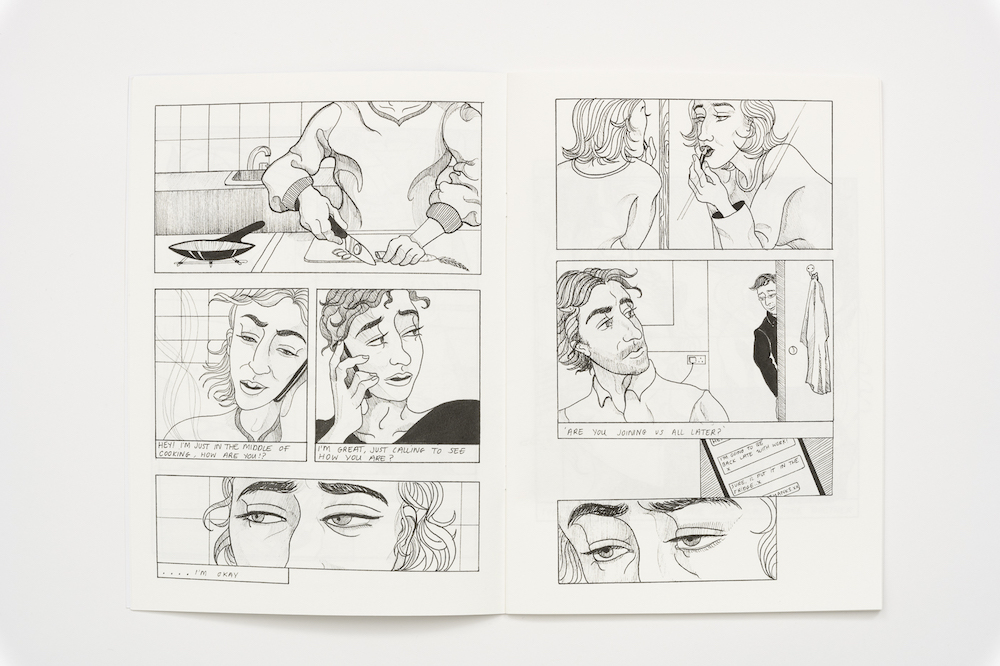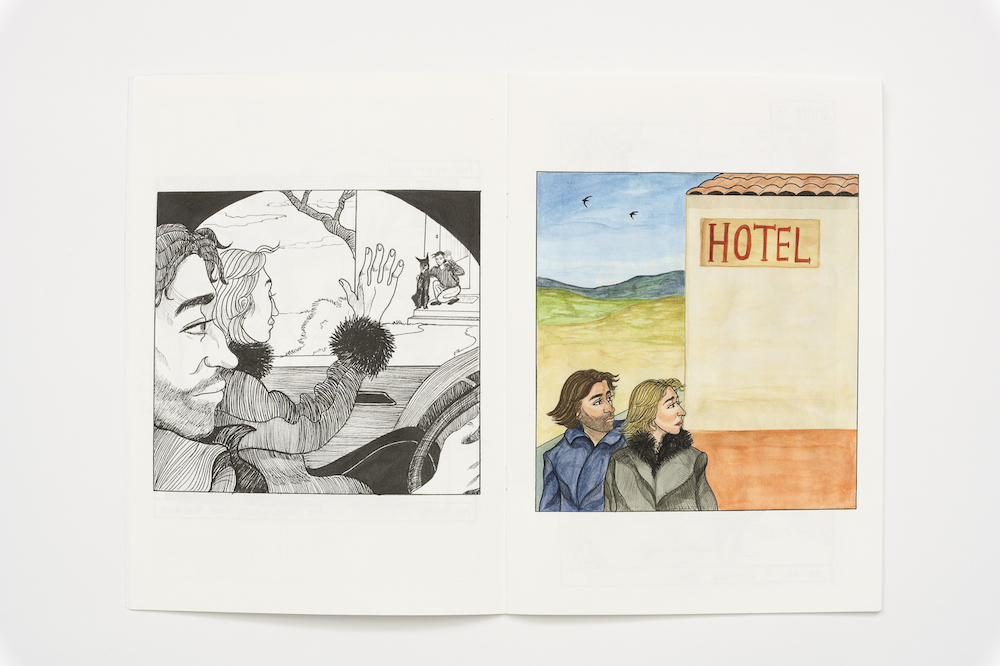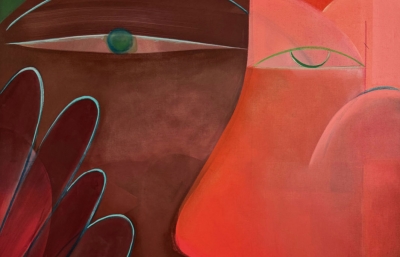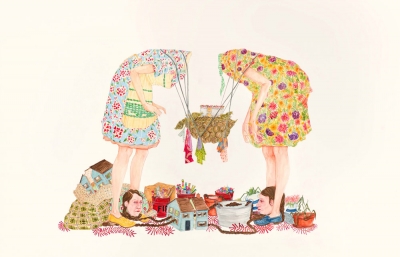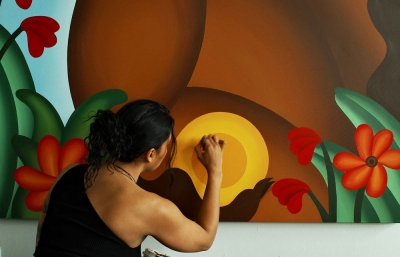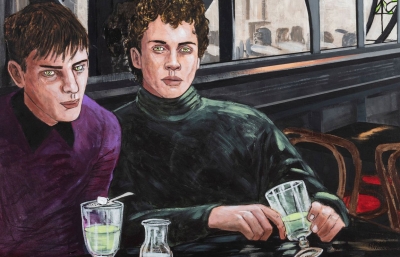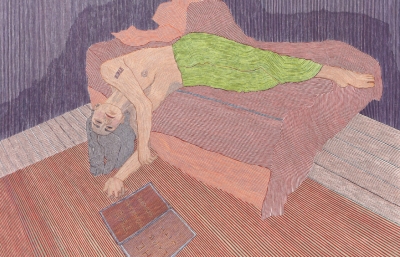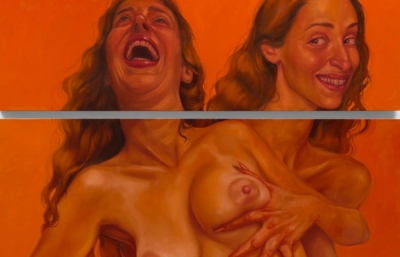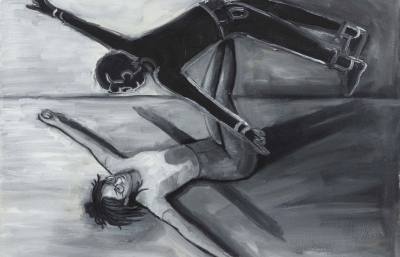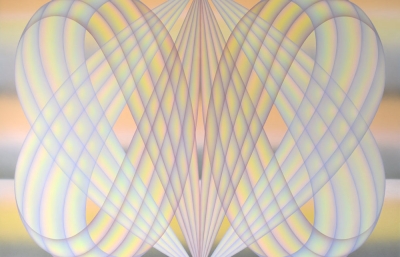When you make cinematic paintings, like Ania Hobson does, there is a bit of a mystery as to what each character might be doing off the canvas. Hobson has always given a type of expressive characteristic to her characters; they are pondering something intensely, perhaps not always wanting to be in the moment and drifting off to a memory or something that is overwhelming them in their life. Often, she paints woman at bars, or walking away from a scene after a long night out, or in a cafe in conversation or often in cars. Everyone is moving. Maybe not physically moving, but their mind has taken them somewhere that is not where the viewer sees them. And hence why Hotel, her new solo show at The Artist Room in London, makes for such a fresh angle to her work: the show "imagines two figures in an unravelling romantic relationship that quickly becomes estranged following a – what should usually be restorative – hotel visit," and also features a "video animation and published a bespoke, physical comic zine incorporating unseen drawings and textual narration."
So now, as the viewer, a stage is set. These are two lovers with something on their mind, something crumbling in front of them, something that has come to an end in what was to be a paradise. Hobson uses this line from Vincent Gallo's "Buffalo 66" as the set up: We're taking pictures like we're a couple. Like we like each other. Like we're husband and wife, and we *span* time together. We *span* time together as a couple. Because we're a loving couple, *spanning* time. These photos are us, in love, *spanning* time.
Anyone who has been in a serious, if not incomplete relationship, one that leaves a sense of emptiness that is always difficult to articulate but so deeply palpable, can see the look on Hobson's female character and understand something isn't whole and an awareness is emerging. That is where Hobson is so deft: she paints a moment of self-awareness, a moment of enlightenment that is almost painful to be in understanding of. Hotel is an end, but with the complexities of what we learn about ourselves when we are at an end with someone. —Evan Pricco





